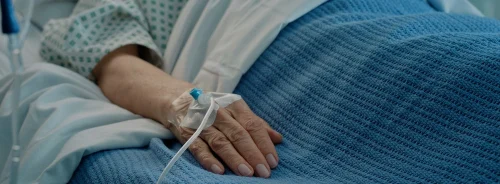ICU Management & Practice, Volume 23 - Issue 1, 2023
As the COVID-19 pandemic hit mankind, many healthcare systems worldwide faced a widely unprecedented shortage of personnel, pharmaceuticals, equipment and/or protective gear. Subsequently, many scientific societies developed and promulgated guidelines for managing the respective scarcities properly within their realms. Despite a noteworthy yet conceivable variability between these guidelines, a few principles matched widely (Meier 2022; Sarmento et al. 2022; White and Lo 2021; Dufner 2021; White and Lo 2020; Sprung et al. 2020; Jöbges and Biller-Andorno 2020), namely:
- Treating patients equally and individually;
- Maximising the benefits achievable under the circumstances prevailing, mostly as maximising the number of lives saved;
- Giving priority to patients with the best odds of success (whereby the parameters to determine the odds included but were not limited to medical history, comorbidities, frailty, and the present health status at admission).
Other principles, such as giving priority to healthcare workers or mitigating structural health inequities, were not met with the same common approval. It was evident, though, that the usual deontological focus of care had to be switched to a utilitarian approach in times of scarcity.
At the same time, most guidelines – including the German one (Marckmann et al. 2020) – stated explicitly that certain personal characteristics were not to be considered with regard to the allocation of scarce resources, particularly sex, ethnicity, (chronological) age, religious affiliation, disabilities, solvency, and the alleged social value.
However, German leagues of persons with disabilities challenged the German guidelines, unanimously adopted by eight German specialist societies, before the German Supreme Court, the “Bundesverfassungsgericht”. The Court stated that the rights of persons with disabilities might be violated by the guidelines and ruled that the German parliament pass a law to preserve the rights of persons with disabilities and prevent their being disadvantaged to a sufficiently effective degree (1 BvR 1541/20, December 16, 2021).
The German parliament has recently pulled off this new law (§ 5c IfSG, in the version dated December 20, 2022), which has been integrated into the national Infectious Diseases Protection Act, “Infektionsschutzgesetz”. The new law is remarkable at least for three stipulations, namely:
- Ex-post triage is explicitly criminalised;
- The allocation of scarce resources must refer to the patients’ short-term survival. At the same time, some factors in assessing the odds of short-term survival are forbidden to use.
- The decision-making process as to the allocation of scarce resources must include “experts” regarding (all) comorbidities and/or disabilities that the patient concerned is suffering from (independent of his/her present health status).
First, to better assess the benefit of life-sustaining, yet at times scarce treatment modalities, treatment in an emergency room or intensive care unit is worth trying for a certain period agreed upon beforehand. Such time-limited trials are an appropriate means to better understand the course of disease in individual patients, elucidate a patient's wishes and values, and reduce the prognostic uncertainty as to survival (Vink et al. 2018). If the status of the patient concerned does not improve during the trial period agreed upon, the therapeutic goal is regularly changed from cure to comfort, and life-sustaining therapies are limited. Criminalising the implementation of this procedure, coined “ex-post triage”, will de facto install a first-come-first-served rule for prioritisation and lead to more preventable deaths (Bartenschläger et al. 2022), as patients with better odds will be denied life-sustaining resources in favour of others already treated with them, however with worse odds. This rule will also affect patients with disabilities, whose representatives had challenged the guidelines in the first place.
Second, the new law states that allocation decisions may only concern the odds of short-term survival. However, several factors that clearly influence it, such as (physiologic) age, disabilities, or frailty, may not be used for its assessment. This is a contradictio in terminis.
Third, the need to summon a potentially great number of (perhaps self-appointed) experts prior to an urgent decision regarding the allocation of scarce resources is a cloistered regulation allegedly typical for unabashed parliamentarians.
Formally, the new law only applies to scarcity situations regarding communicable diseases and has therefore been integrated into the national Infectious Diseases Protection Act. However, the criminalisation of ex-post triage might be transferred to other scenarios using a conclusion by analogy. Then, in fact, Germany would side with Israel in this respect, where physicians are forbidden to withdraw life-sustaining therapies (Steinberg and Sprung 2006). Besides, Germany would be one of the very few countries explicitly installing a first-come-first-served rule for the allocation of scarce resources – in fact, not only in intensive care units.
In summary, the new law will result in what it was meant to prevent: more legal disputes, more ethical dilemmas, and, most alarmingly, more preventable deaths. Physicians will shun from making proportionate decisions as to the extent of treatment for fear of legal repercussions and laymen’s pressure. For the sake of their professional integrity, though, physicians should firmly uphold the right to their own professional judgement – also in times of scarcity.
Conflict of Interest
None.
References:
Bartenschläger CC, Brunner JO, Heller AR (2022) Evaluation of score-based approaches for ex post triage in intensive care units during the COVID-19 pandemic: a simulation-based analysis. Notf Rettungsmed. 25:221-3.
Dufner A (2021) Withdrawal of intensive care during times of severe scarcity: triage during a pandemic only upon arrival or with the inclusion of patients who are already under treatment? Bioethics. 35:118-24.
Jöbges S, Biller-Andorno N (2020) Ethics guidelines on COVID-19 triage – an emerging international consensus. Crit Care. 24:201.
Marckmann G, Neitzke G, Schildmann J et al. (2020) Decisions on the allocation of intensive care resources in the context of the COVID-19 pandemic. Med Klin Intensivmed Notfmed. 115(Suppl3):115-22.
Meier LJ (2022) Systemising triage: COVID-19 guidelines and their underlying theories of distributive justice. Med Health Care Philos. 25:703-14.
Sarmento JT, Pedrosa CL, Carvalho AS (2022) What is common and what is different: recommendations from European scientific societies for triage in the first outbreak of COVID-19. J Med Ethics. 48:472-8.
Sprung CL, Joynt G, Christian MD et al. (2020) Adult ICU triage during the coronavirus disease 2019 pandemic: who will live and who will die? Recommendations to improve survival. Crit Care Med. 48:1196-202.
Steinberg A, Sprung CL (2006) The dying patient: new Israeli legislation. Intensive Care Med. 32:1234-7.
Vink EE, Azoulay E, Caplan A et al. (2018) Time-limited trial of intensive care treatment: an overview of current literature. Intensive Care Med. 44:1369-77.
White DB, Lo B (2021) Mitigating inequities and saving lives with ICU triage during the COVID-19 pandemic. Am J Resp Crit Care Med. 203:287-95.
White DB, Lo B (2020) A framework for rationing ventilators and critical care beds during the COVID-19 pandemic. JAMA. 323:1773-4.








